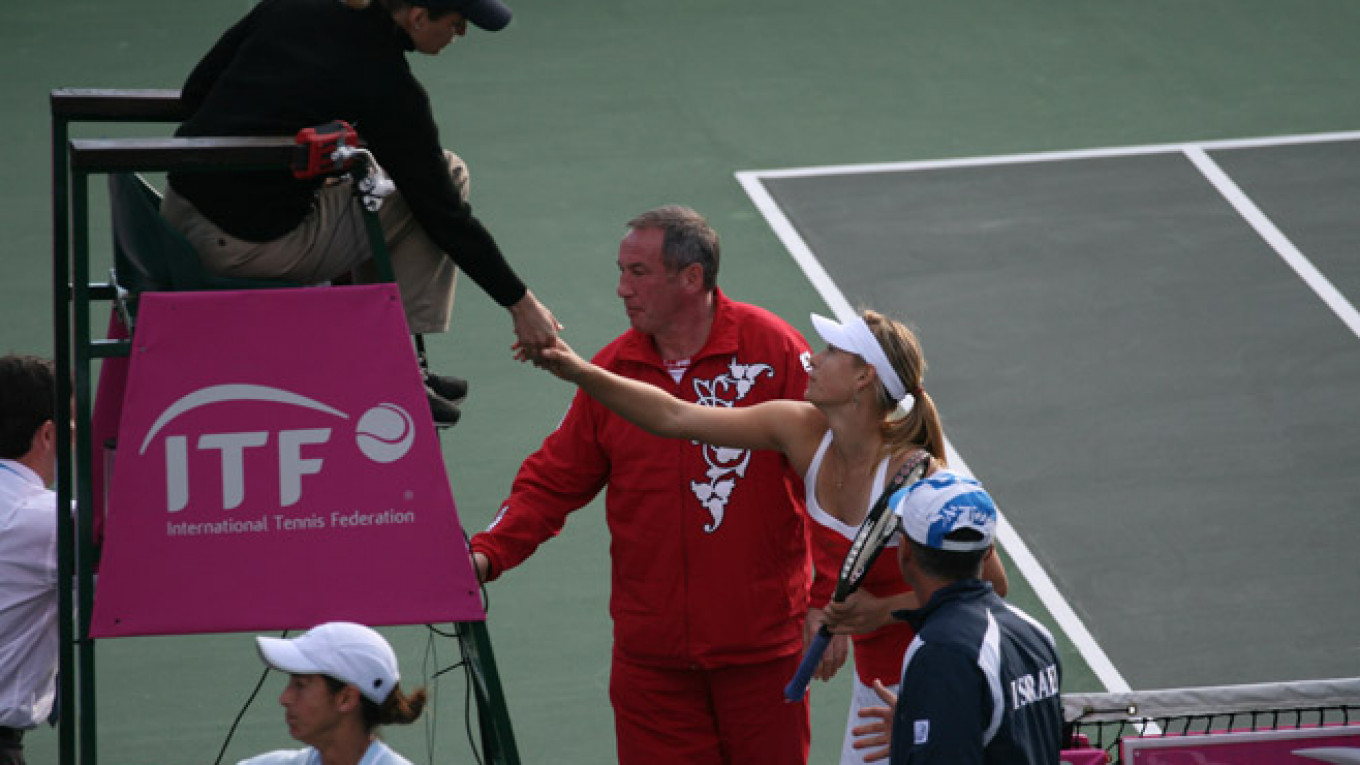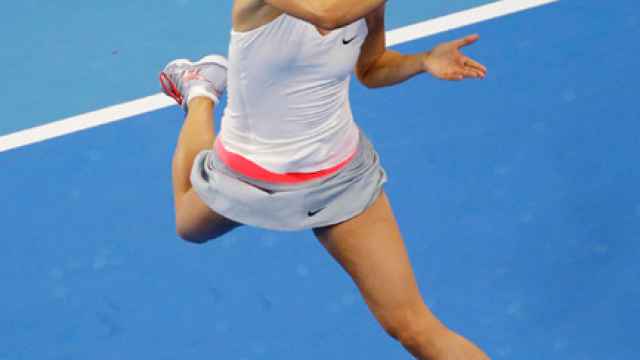As the Russian capital gears up to host the nine-day Kremlin Cup — a professional tennis tournament that kicks off Saturday at the Olympic stadium — The Moscow Times caught up with Shamil Tarpischev, the longtime president of the Russian Tennis Federation, to discuss the state of the sport in Russia.
From 1974 to 1991, Tarpischev served as the team captain and head coach of Soviet national tennis teams. In the post-Soviet era, the 66-year-old tennis legend trained some of Russia's brightest tennis talent, including Yevgeny Kafelnikov, Marat Safin and Maria Sharapova. Tarpischev, who has held various positions in Russia's sports agencies, also had another prominent tennis pupil: former President Boris Yeltsin.
Q: The budget of the Russian Tennis Federation is much smaller than that of other countries,* yet Russia is known for producing many strong tennis players. How do you explain Russia's tennis success on a low budget?
A: A little money will give you one champion. Lots of money will make many champions. This is a given. But in our case, our methods are what have made the system successful. Russia has come in first in Europe on the junior side for the past decade. We beat the second-placed Czech Republic last year by something like 1,500 points — more than twice as many as they earned. We have also won seven major tournaments this year.
If we had a larger budget we would do better, of course. But we have to live within the means available to us and develop our methods and system.
*The Russian Tennis Federation's 2013 budget amounted to $8 million. The tennis federation of the United States boasted a budget of $225 million for the same year, and China — $150 million.
Q: Tennis gained massive popularity in Russia in the 1990s. Is tennis as popular in the country now as it was back then?
A: The popularity of tennis is growing, but its growth has slowed down [compared with the 1990s]. When the financial crisis hit a few years ago, more than 30 of our sponsors were medium-sized businesses. These enterprises removed their sponsorship, and there was a general decrease in financing for the sport. Bank of Moscow has increased its funding, though, and is now sponsoring the Kremlin Cup. The Moscow government is also helping out with the tournament.
Many of the country's regional governors are avid sports fans. Tennis is developing well in Kazan [the capital of Tatarstan], for example. The head of Tatarstan, Rustam Minnikhanov, and the governor of the Rostov region are both tennis fans.
In Russia, tennis goes where it is loved. It develops in regions where the authorities are tennis fans [laughs]. This is an ongoing phenomenon, but there still aren't enough opportunities [for tennis to develop].
Q: Do you think that tennis could someday lose its elitist nature in Russia and become a sport of the masses?
A: I think there are different ways to interpret the nature of a "mass" sport. I would say that tennis is already a mass sport. Russia hosts more than 2,000 tennis tournaments a year. More than 7,000 children and 23,000 amateur players regularly take part in these tournaments. These are pretty big figures, considering that tennis is a seasonal sport in many regions.
Q: How can Russia solve the issues hindering the development of tennis in the country?
A: Russia is one of the only countries that teaches tennis at the university level. A tennis faculty at the Physical Education University is set to open in Kazan next year. It will train tennis professionals in accordance with the methods of the International Tennis Federation and our national federation. I don't think there are many countries considering teaching tennis at that level.
Q: Would tennis in Russia be the same without Boris Yeltsin, who was an avid tennis player?
Yeltsin made [Russia] rediscover tennis. Tennis wasn't bad in the Soviet Union, but it was considered a bourgeois sport that was out of touch with the people. When people saw Yeltsin wearing shorts and waving a tennis racket around, many decided to take up the sport. He was the catalyst for the development of tennis in this country.
Q: How would you describe Yeltsin's game?
A: Well, Yeltsin was a volleyball player, so he had a pretty good serve. We played doubles together. When the two players on a doubles team both have a good serve, it's difficult to lose [laughs]. His style really showed that he was a true athlete. He would begin to play better when he was in difficult situations like break points.
Q: If President Vladimir Putin were to take up the sport and play against Yeltsin in his prime, who do you think would win?
A: Putin doesn't play tennis. But if he were to wrestle Yeltsin, I'm sure he would win [laughs].
Contact the author at g.tetraultfarber@imedia.ru
A Message from The Moscow Times:
Dear readers,
We are facing unprecedented challenges. Russia's Prosecutor General's Office has designated The Moscow Times as an "undesirable" organization, criminalizing our work and putting our staff at risk of prosecution. This follows our earlier unjust labeling as a "foreign agent."
These actions are direct attempts to silence independent journalism in Russia. The authorities claim our work "discredits the decisions of the Russian leadership." We see things differently: we strive to provide accurate, unbiased reporting on Russia.
We, the journalists of The Moscow Times, refuse to be silenced. But to continue our work, we need your help.
Your support, no matter how small, makes a world of difference. If you can, please support us monthly starting from just $2. It's quick to set up, and every contribution makes a significant impact.
By supporting The Moscow Times, you're defending open, independent journalism in the face of repression. Thank you for standing with us.
Remind me later.






